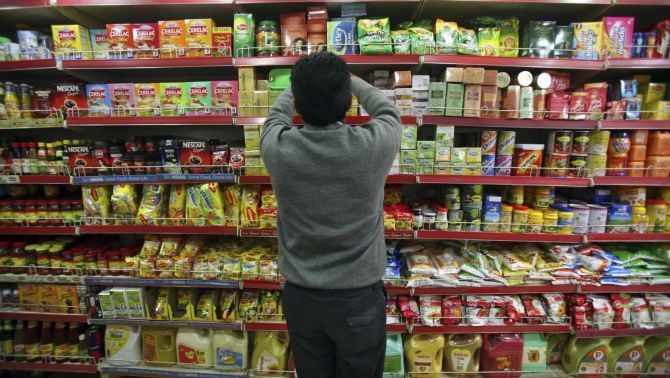The Budget proposals are expected to boost the fortunes of consumer goods and fast-moving consumer goods companies, which have been struggling with poor consumer demand for more than a year.

The Budget announcements, such as the increase in standard deduction by Rs 25,000 for income-tax payers and slab revisions, will put more money in their hands, boosting consumer demand.
Private consumption is also likely to benefit from a new scheme to offer internships to 10 million youths in the country’s top 500 companies.
The scheme is likely to expand the formal job market, which will expand the consumer market.
“The Budget announcements such as higher allocation for development, schemes for youth employment, and skilling are positive for businesses like ours, which serve nine out of 10 households, ranging from the mass end of the market to the premium.
"The proposals will have a multi-year effect in inducing consumers to spend more,” says Rohit Jawa, managing director and chief executive officer, Hindustan Unilever.
On the downside, however, the increase in long-term capital gains tax and short-term capital gains tax on equity will hurt high net worth investors (HNIs).
Similarly, the withdrawal of indexation benefits for real estate investors will hurt families in the upper-income bracket. Taken together, the proposal is likely to affect the demand for big-ticket and luxury consumer goods.
“Earlier, the government was focused on boosting the supply of goods and services through measures such as cuts in corporate tax, production-linked incentives, and higher public capex.
"The Budget signals a pivot to boosting aggregate demand by putting more money in the hands of individuals and families,” said Dhananjay Sinha, co-head research and equity strategy, Systematix Institutional Equity.
Mohit Malhotra, chief executive officer, Dabur India, said: “The various Budget proposals will mean more disposable income in the hands of consumers and would lead to sustained demand for branded consumer goods.
"The push on urban and rural growth will help boost rural consumption and also increase discretionary spending.”
Mayank Shah, vice-president, Parle Products, agrees.
“Most expectations we had from the Budget have been met.
"Notable among them is putting more money in the hands of consumers through job creation and increased infrastructure spending,” he said.
Not surprisingly, consumer goods stocks rallied on Tuesday even as the broader market ended in the red.
The FMCG index was the top performer and was up 2.7 per cent, led by gains in heavyweights such as ITC (up 6.52 per cent), Tata Consumer (4.42 per cent), and Hindustan Unilever (1.12 per cent).
It was followed by the Nifty consumer durable index, which was up 2.1 per cent, led by Rajesh Exports (6.84 per cent), Titan (6.56 per cent), Kajaria Ceramics (5.66 per cent), Kalyan Jewellers (4.3 per cent), and Blue Star (2.16 per cent).
Other consumer demand-related sectors that rallied include the Nifty Media (up 1.2 per cent), Nifty Pharma (up 0.6 per cent), and Nifty Auto (up 0.3 per cent).
In comparison, the Nifty 50 index was down 0.1 per cent and the decline was led by investment- and capex-related stocks such as Larsen & Toubro, Hindalco, and Shriram Finance.
The Nifty realty index was the worst performer, down 2.3 per cent, followed by Nifty PSU Bank (1.4 per cent), Nifty Bank (1 per cent), Nifty Metal (0.8 per cent), and Nifty Infrastructure (0.8 per cent).
Other analysts, however, remain cautious on consumer demand.
“Investment- and capex-related companies will continue to deliver faster growth in FY25, given higher allocation for capital expenditure.
"The FMCG sector is likely to remain a laggard in terms of earnings growth,” said the co-founder and chief investment officer, Narnolia Financial Services.












 © 2025
© 2025